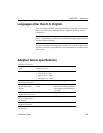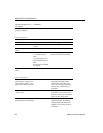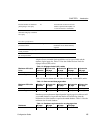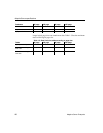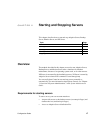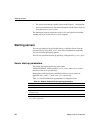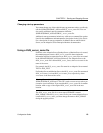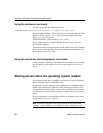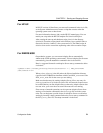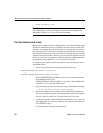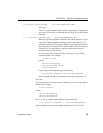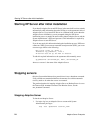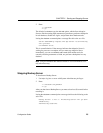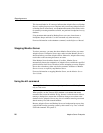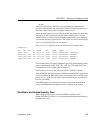
CHAPTER 2 Starting and Stopping Servers
Configuration Guide 21
For HP-UX
In HP-UX versions 10.0 and later, you cannot edit commands in the /etc/rc file,
so the System Administrator must create a script that executes when the
operating system starts or shuts down.
For more information about
rc (1M), see the HP-UX manual page. You can
model your script after the HP-UX template file /sbin/init.d/template.
After creating the start-up and shutdown script, place it in the directory
/sbin/init.d. Execution scripts placed in this directory have symbolic links to
directories /sbin/rcn.d where n is the system run level. The linked scripts in
/sbin/rcn.d are used to control the sequencing order of the execution scripts.
For IBM RS/6000
On production systems, you can restart Adaptive Server automatically
whenever the UNIX operating system restarts. To have Adaptive Server restart
automatically, place the
startserver command in the /etc/inittab file.
Here is a suggested format for an Adaptive Server start-up command to add to
/etc/inittab:
"sybase:2:wait:/release_directory/install/startserver -f \ RUN_servername
/dev/console 2>&1"
Where release_directory is the full path to the Sybase installation directory
(specified as the SYBASE environment variable), and RUN_servername is the
RUN_server_name file for the server you are starting.
Make sure that the entry for starting Adaptive Server follows any entry for
/etc/rc.tcpip and /etc/rc.nfs in the /etc/inittab file. All network resources must
be available before you start Adaptive Server; otherwise, Adaptive Server does
not start. Also, your server does not start if the network is not running.
Slow start-up of network operations can also prevent Adaptive Server from
starting, even when the commands in the /etc/rc.tcpip file are in the correct
order. You can designate a period of time for Adaptive Server to wait before
starting by inserting a
sleep command before the server start-up command in
the RUN_server_name file. The
sleep command is in the form:



